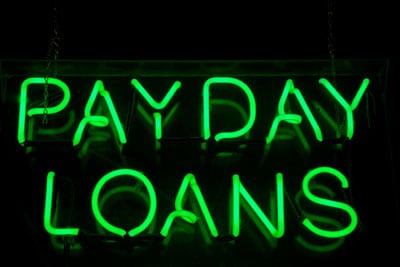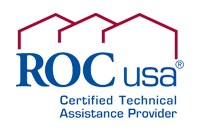
Protect yourself against payday lender scams
By Kathi Paradis
Payday lenders use a variety of schemes to get into your bank account, including cash-grab scams, phantom debts, and scare tactics.
I recently worked with a borrower who had fallen victim to a payday lender trap.
A payday loan is a relatively small amount of money lent at a high rate of interest. Borrowers agree to repay their loans, and interest, when they receive their next paycheck.
But if you can't pay the money back by the next pay day, the lender will "roll over" your loan. Rolling over means that they take the original loan amount, extend the term, and add fees, making the amount you owe significantly higher than your original loan amount. Then maybe you need to borrow a little more to get you to the next payday.
 That little loan can quickly balloon to a lot more than what you originally borrowed.
That little loan can quickly balloon to a lot more than what you originally borrowed.
The borrower I worked with had taken advantage of the short-term loan to catch up on some bills, and paid it off in full when it came due. Sounds good, right?
Well, no. Payday lenders use a variety of schemes to get into your bank account, including cash-grab scams, phantom debts and scare tactics.
Phantom debt
My borrower, I'll call him Al, was a victim of the phantom debt. A payday lender put on Al's credit report that Al owed a sum of money for a payday loan. Not only had Al not authorized the loan, but the supposed lender is prohibited from doing business in Massachusetts, where Al lived.
How could this happen? Typically, to obtain an online payday loan, a consumer submits financial information to a lead generator, a Web site that matches a borrower with available lenders. Whether or not the consumer actually follows through and activates the loan, this information can be sold to anyone, including a lender who can use the information to claim the consumer activated a loan with its company.
Usually a borrower doesn't know that these phantom debts exist until they apply for credit or a debt collector calls to harass them. These debt collectors count on the consumer not knowing if they owe the debt or not and not knowing their consumer rights. Most of all, the collectors count counting on consumers being so embarrassed by the call that they make the payments just so the caller goes away.
The calls have gotten so abusive that the Consumer Financial Protection Bureau is actively seeking complaints against payday lenders.
The cash-grab scam is one of the most dangerous to your bank account. The lender will make a deposit into a consumer's account (without authorization), then start withdrawing finance charges, again without your authorization. Consumers have had to present sworn affidavits to their banks to stop the unauthorized withdrawals. Some close their bank accounts entirely.
How to protect yourself
If at all possible, don't use payday lenders. If you do, make sure that you get everything in writing, including the loan amount, loan terms and document every payment you make. It's never a good idea to provide your personal and private information online, because you don't know who is on the other end.
Check your bank accounts and investigate any activity that you didn't authorize. If you need to stop unauthorized withdrawals, close the account and open a new one. Your financial institution will help you with unauthorized transactions.
Monitor your credit report. If you find a debt that you don't owe, file disputes with the credit repositories: Trans Union, Experian and Equifax. Their Web sites will instruct how to do this.
If you receive a call from a debt collector for a debt you believe you don't owe, ask for the caller's name, the company they represent and who you owe the money to. If they can't tell you, hang up.
If a debt collector becomes abusive and threatens legal action, request a written notice of the debt and tell them you do not wish to be contacted again. The Fair Debt Collection Practices Act requires a creditor to respect this request.
Last but not least, the Consumer Financial Protection Bureau has a database where you can enter complaints against payday lenders and get information on how to protect yourself. Another useful site is www.fraud.org, which has information on payday scams.
Kathi Paradis is a Welcome Home Loans Originator at the New Hampshire Community Loan Fund.
NMLS #469310. Licensed by the New Hampshire Banking Department.















